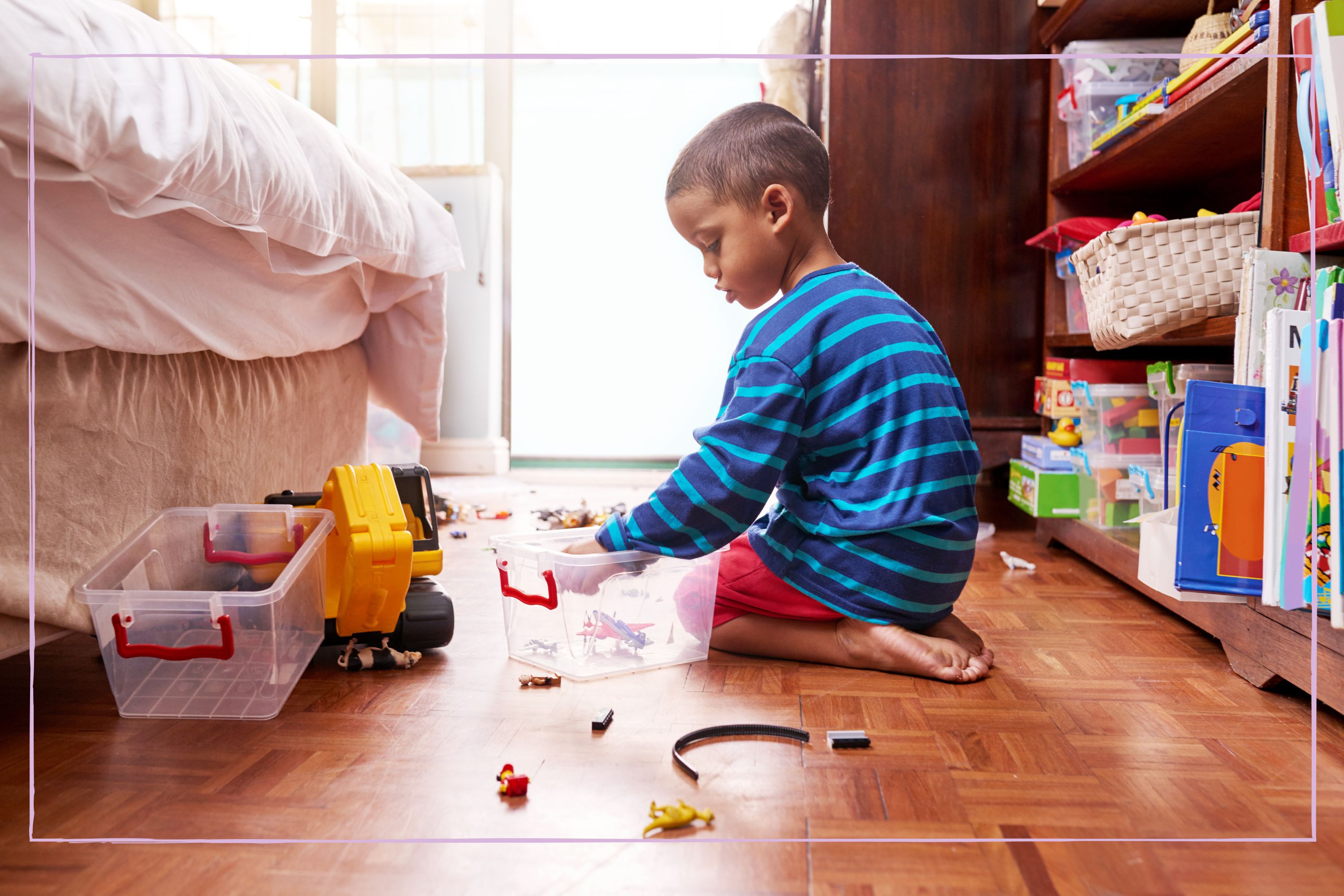
Parents are used to tidying up after their kids, but if you're looking for ways to encourage them to help out, studies show this strategy works.
If your child loves cleaning toys (think miniature Henry Hoovers and pretend washing up sets), then you might be hopeful that they'll quickly learn to tidy up after themselves. Unfortunately, this isn't always the case, and even the best toy storage ideas won't help keep your house tidy if no one is actually using them.
But, luckily, a child psychologist has shared a clever strategy that will help you encourage kids to tidy up - and it's been backed up by science. Cara Goodwin - aka 'Parenting Translator' - is a best-selling author and mother-of-four, and uses her expertise to translate recent scientific research into information that parents can use.
She shared on Instagram a study published in the Journal of Child and Family Studies, which found that collaboration is the key to encouraging toddlers to tidy up. The study included 105 mother-toddler pairs with toddlers aged 17 to 30 months. After being placed in a room full of toys, they were allowed five minutes of playing, after which they were instructed to direct their child to put the toys away.
The researchers then compared three different approaches from the mothers in the study:
- Deliberate modelling: when the mother first gets the child’s attention, then puts the toy away while instructing their child to also clean up
- Indirect modelling: when the mother puts away a toy without first getting the child’s attention or instructing the child to do the same
- Collaborating: when the mother does the first part of the task (such as handing a toy to the child or moving the toy closer to the child)
The researchers found that collaborating was particularly effective at getting children to clean up and was associated with more long-term positive impacts, including reduced problem behaviour and improved self-regulation two months later.
The study suggested that the reason why this strategy works best is because it encourages parents and children to be responsive, interactive, and cooperative with each other while still respecting the child’s autonomy - they're not being 'forced' to tidy up.
After psychologist Cara Goodwin shared the findings, fellow Instagram users were quick to share how this strategy has worked for them. One said, "Last night trying to get my 2 year old to help clean up was a nightmare, but after reading your newsletter today, cleaning up just went so well. Thank you!!!"
Another added, "Collaborating works so well with my son - we also like to make it a game or a race, nothing gets him picking up faster", while one added, "I have found this to be the best strategy as well!"
In other news, a child psychologist has shared three responses for when your child says 'I hate reading' and expert Dr Becky has revealed the best way to give shy children more confidence.







